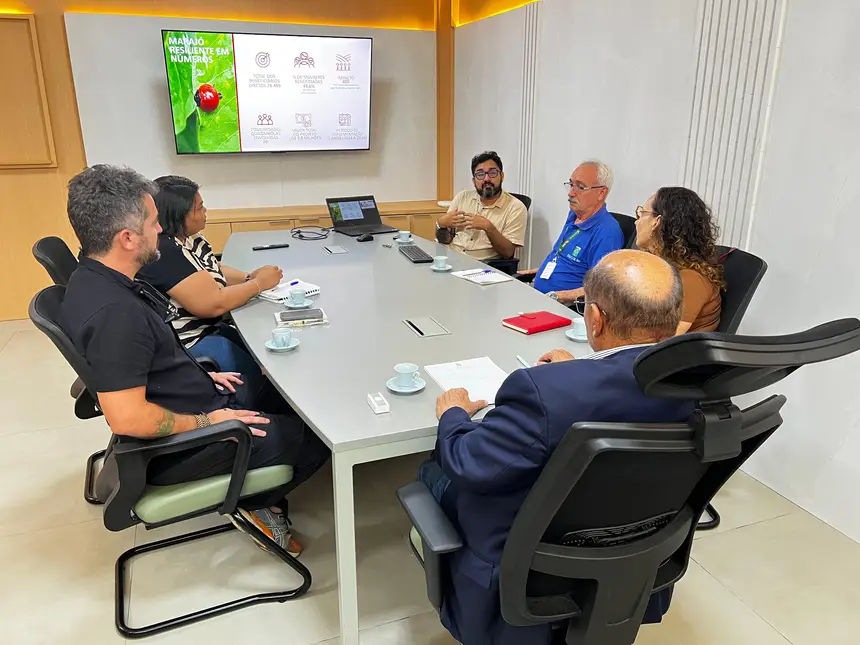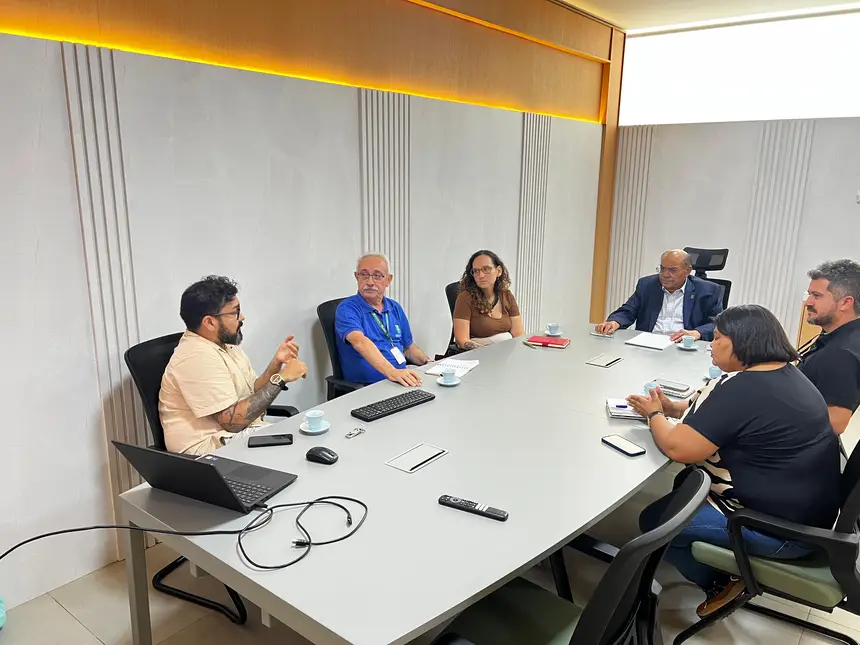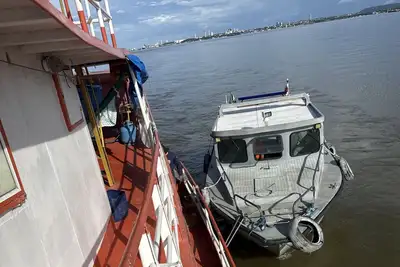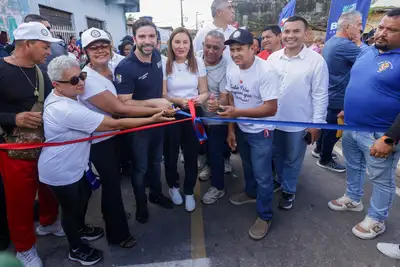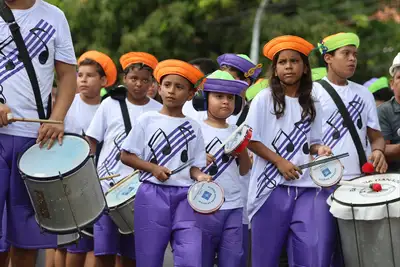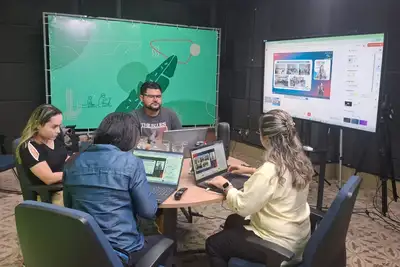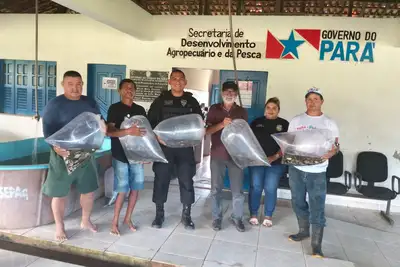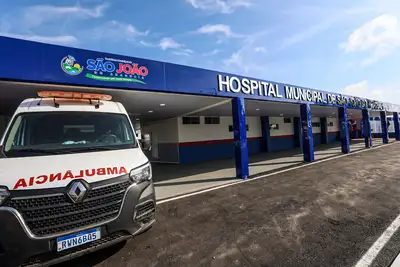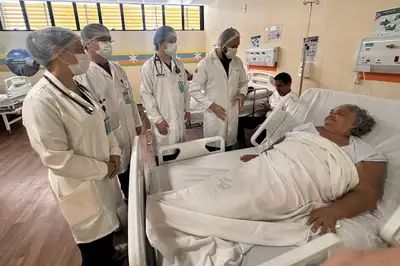Resilient Marajó Project approaches partnership with Ideflor-Bio to strengthen sustainable agriculture in the archipelago
The visit aimed to strengthen ties and align joint actions focused on the implementation of diversified Agroforestry Systems (SAFs) in the municipalities of Cachoeira do Arari, Salvaterra, and Soure.
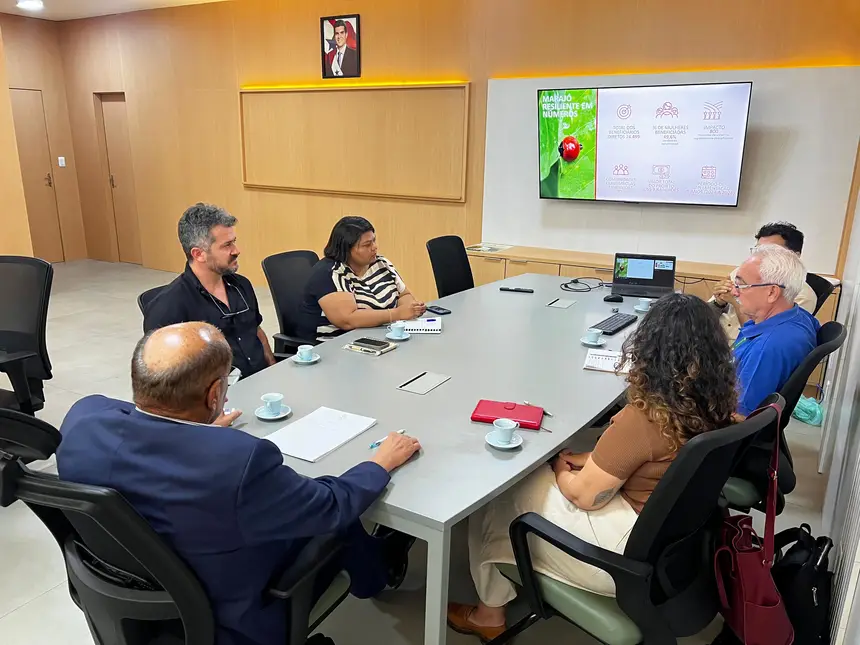
The Forest Development and Biodiversity Institute of Pará (Ideflor-Bio) received, this Wednesday (9), in Belém, a delegation from the Resilient Marajó Project, an initiative led by Fundación Avina and the Belterra Institute, with support from other entities. The visit aimed to strengthen ties and align joint actions focused on the implementation of diversified Agroforestry Systems (SAFs) in the municipalities of Cachoeira do Arari, Salvaterra, and Soure, in the Marajó Archipelago.
The delegation was welcomed by the president of the Institute, Nilson Pinto, the director of Forest Chain Development, Vicente Neto, and the manager of the Eastern Marajó Regional Office, Osiane Barbosa, who has been closely monitoring the stages of project implementation. With activities planned between 2024 and 2029, the Resilient Marajó seeks to promote climate resilience and food security through the strengthening of family farming and the appreciation of traditional cultivation practices amid the increasing impacts of climate change in the region.
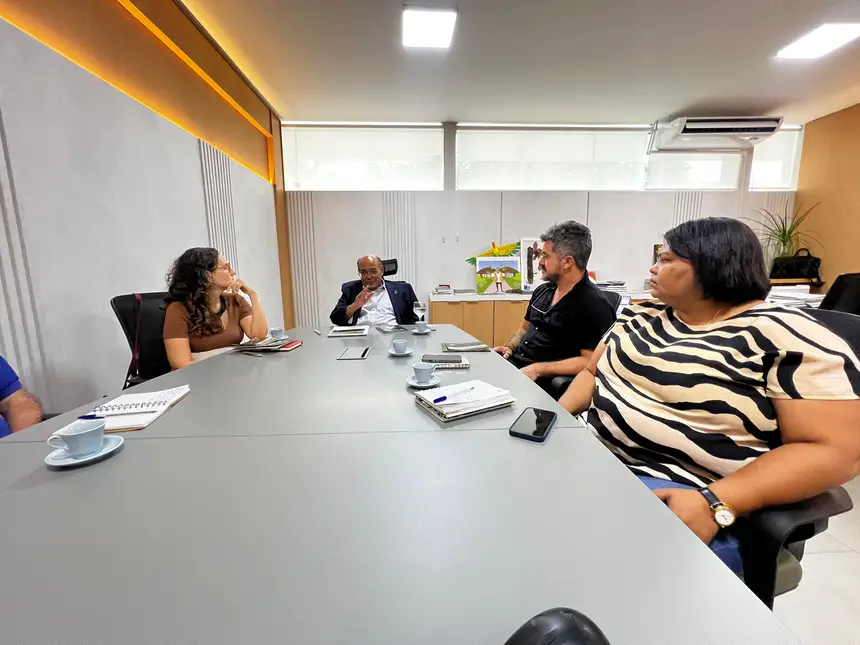
“The arrival of the Resilient Marajó is extremely timely. We have sought, through public policies such as our Agroforestry Systems Project (PROSAF), to promote sustainable agriculture that respects the natural vocation of the territory and values the knowledge of the communities. The synergy with this initiative expands our reach and enhances the expected results for Marajó,” highlighted Ideflor-Bio president, Nilson Pinto.
Partnership - During the meeting, representatives of the partner organizations reinforced the desire to formalize a Technical Cooperation Agreement (ACT) between the project and the Institute. For Lanna Peixoto, representative of Fundación Avina, the approach with Ideflor-Bio can ensure greater effectiveness in the actions developed.
“The Resilient Marajó project aims to promote climate resilience through diversified agroforestry systems. This approach with Ideflor-Bio, which already works with programs like PROSAF, is a great opportunity for synergy. We came to seek ways to strengthen and scale actions that are already underway, combining efforts and technical knowledge to reach more farmers and more hectares implemented with SAFs,” she stated.
With a goal of implementing 800 hectares of agroforestry systems and serving at least 800 farming families, the project also focuses on training local multipliers, strengthening community governance, accessing public policies, and diversifying income through sustainable land use.
Adriano Lopes Mello, from the Belterra Institute, emphasized the relevance of institutional alignment. “This conversation with Ideflor-Bio is strategic. The Resilient Marajó project and PROSAF walk in complementary directions. We can join forces to advance not only in the implementation of SAFs but also in seedling production, water solutions, and structuring productive chains that support family farming.”
Opportunities - Manager Osiane Barbosa, who works directly with the municipalities covered by the initiative, celebrated the start of the dialogue. “The exchange of experiences between institutions and the connection between what already exists and what is being proposed are fundamental. We are talking about territories rich in knowledge, but that also face great climatic and social challenges. With this partnership, we have real conditions to transform the reality of many Marajó families with respect, knowledge, and sustainability,” she assessed.
In addition to Fundación Avina and the Belterra Institute, the Resilient Marajó also involves the work of the Sustainable Connections Institute (Conexsus), which strengthens socio-environmental impact businesses, and the International Education Institute of Brazil (IEB), which works on leadership training and strengthening local governance. The initiative is funded by the Green Climate Fund (GCF) and part of the recognition that the effects of climate change — such as increased soil salinity, intensified droughts, and changes in planting periods — are already a reality in Marajó.
Based on the existing community experience in the archipelago, the project's creators intend to expand sustainable production practices, promoting healthier food, year-round income, and the recovery of degraded areas. The next step will be the formalization of partnerships and the beginning of the selection process for the farmers who will participate in the implementation of SAFs in the three priority municipalities.



